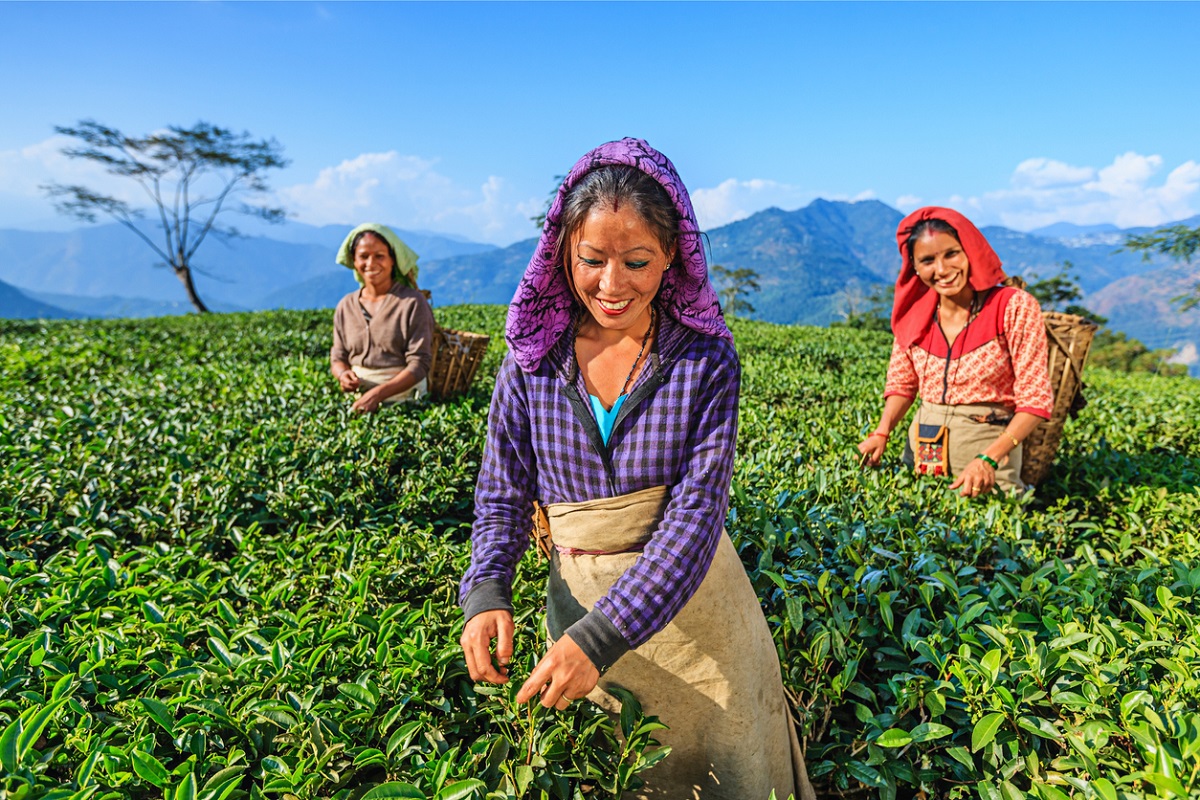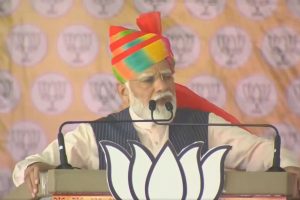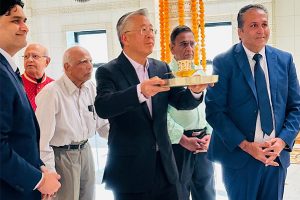Showcasing the Wage Code ahead of the Assembly elections in West Bengal, the BJP had assured to pay tea workers Rs 350 per day in the region if the party formed the government in the state. The Trinamul Congress-led state government had, on the other hand, hiked the wages and started paying Rs 202 a dayan increase from Rs 67 a day in the last 10 years.
Trade unions belonging to different political parties reached out to the tea workers with two issues-daily wage and parja-patta (land rights deed)–ahead of the elections, and the BJP finally managed to win many seats in the tea belt, both in the Hills and the plains. As traditionally seen, trade unions play a very crucial role in keeping control over workers ahead of the elections, and some issues that exist are a “healthy ballot” for a political party.
However, given the comeback that the TMC has made in the state, those in the tea industry and even political leaders are now questioning as to how the tea workers will be getting benefits from the government, as there is a conflict between the BJP that is at the Centre and the TMC in the state. Significantly, after the formation of a trade union in the Darjeeling tea industry way in 1945, communist union leaders demanded that garden authorities stop “Hattabahar”, a system of eviction from garden premises by the management.
Now, parjapatta is a big issue, where trade union leaders as well as workers are demanding execution of land rights for workers, where they have been living for several years. Notably, the author of a book ‘All in a cup of tea,’ JP Gurung, has mentioned the history of the formation of the trade union in the tea industry in the region, and its political objectives.
“The economic depression of the early 1930s saw signs of discontent, and trade union activities becoming visible in many industries across India. These rumblings led to the birth of the All India Trade Union Congress on 31 October 1920. Subsequently, the government passed the Trade Union Act in 1926, granting the right to organise trade unions within a given framework,” Mr Gurung says in one of the chapters titled ‘Trade Union Movement in Darjeeling Hills.’
“In tea plantations of Darjeeling, however, union activities were considered illegal by the management as well as the local administration. In fact, confidential reports were maintained by many of the garden managers, documenting any union activity reported to them by their “loyal chowkidars.” This, in turn, was shared with the local administration and steps were taken to nip any problems in the bud,” Mr Gurung says.
According to the author, on 15 September 1945, the first union owing allegiance to the Communist movement known as the “Darjeeling Tea Garden Workers’ Union” was registered under the leadership of Sushil Chatterjee, Ratanlal Brahmin, Ganeshlal Subba, BB Hamal and BB Chettri.
“Interestingly, for elections to the Bengal Assembly, two seats were allotted to the Darjeeling area, one of which would be general and the other labour, and very significantly 12 tea gardens were selected for delimitation of the second Labour Assembly Segment,” the book says, adding, “The Communist party fielded Ratan Lal Brahmin, popularly known as ‘Maila Bajey,’ showcasing the manifesto in two parts. One was political and other was economic.”
“The political manifesto included self determination for Gurkhas in the form of Gurkhastan, voting rights for all adults, security for Gurkhas serving in the armed forces, preservation of language and culture of the Hill people, opportunities for education and employment,” Mr Gurung writes. In the second part, there were 11 points, including Hattabahar and increase of the wage structure.
Significantly, Maila Bajey bagged 85 percent votes and won the elections. “Percival Griffith, in his book ‘A History of the Indian Tea Industry’, has stated: “In Darjeeling, trouble began with the election of a communist candidate to the Bengal Legislative Assembly in 1946,” Mr Gurung mentions in his book.











